IGTV: How to Empower Yourself and Others in Meetings
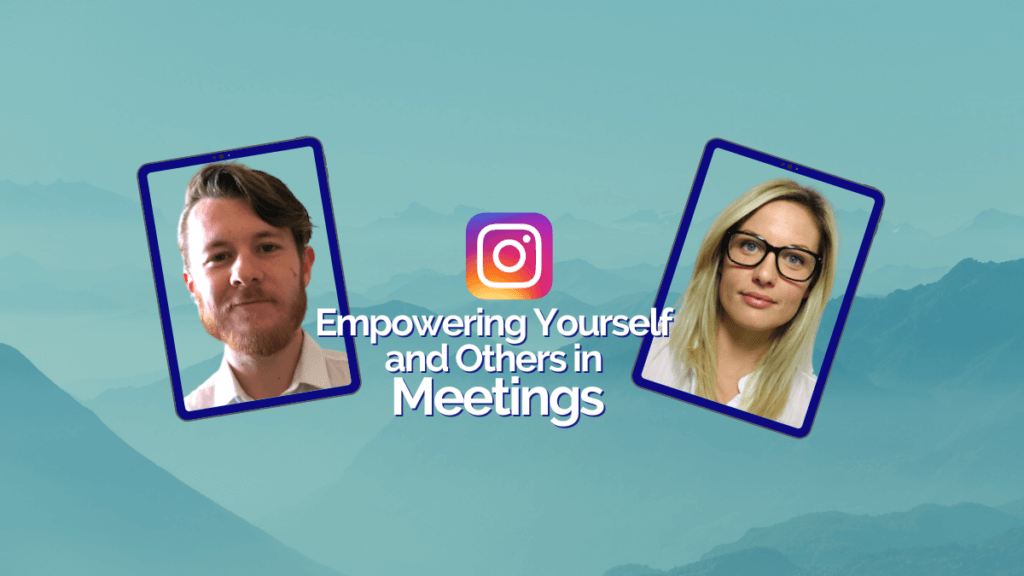
Last week, Lorraine and Tom hosted a Live chat on Instagram about ways to empower yourself and others in meetings.
Watch the full chat on YouTube.
You can read the transcript of the video below.
Don’t forget to make note of any new vocabulary to share with your teacher during your next lesson.
Resources mentioned:
Meetings Blog Post
Kamala Harris – “I’m speaking.”
Minimising Language
7 Tips for Men Who Want to Support Equality
Let her finish: interruptions of female justices led to new supreme court rules
Transcript
Lorraine Venables
Hi, everyone. Just getting started now. I’m just inviting Thomas to join us. So for those of you who don’t know, we’re live today to talk about empowering yourself and empowering other people in meetings. So, at Intrepid English, we help English learners to, yeah, to feel more confident speaking English, especially at work, or in a variety of different situations really.
So today’s meeting is designed for English learners, but it’s also for anyone who really needs some help empowering themselves and other people. So specifically for those who are a little bit underconfident, maybe have trouble speaking English as a second language, have trouble speaking up and contributing. Okay. Great. Thomas is joining us now. Hopefully, this is always a little bit tricky getting set up. Here he is. Hey! Are you there?
Thomas Stewart 01:51
I’m here. From my, from my internet. So, as in my laptop, so maybe that helps the situation.
Lorraine Venables 01:58
Okay, cool. Awesome. Yeah, I was just giving a bit of an intro while we were waiting for you to join us. So, I just mentioned that we’re, we’re doing this live to help English learners, but generally people who have meetings in English and struggle to contribute. Maybe because they feel shy, or that they often don’t get a chance to jump in. Maybe there are people talking all the time, and they don’t really get a chance to speak. So yeah, we wanted to focus on this, partly because we’re just launching a Meetings course in the Academy. But also, because inclusivity is really important to us in general. Thomas is a teacher at Intrepid English, and you’ve just written the course, haven’t you, Tom. So would you like to introduce yourself and tell us a little bit about the course?
Thomas Stewart 02:49
Yeah, sure. Yeah. Yep. I’m Tom. And I’ve been teaching, I think I realised the other day, I’ve been teaching for Intrepid English for over four years now. Long time. And over that time, I’ve written a few courses. And this one is about meetings.
Typically, with our courses, we try and do a mix of creativity and things that will be useful for students. We focus a lot on business because that’s what our students need it for. But in addition to that, as Lorraine was saying, inclusivity, growing as a person, expanding one’s mind is really important to us here. And part of that leads to the fact that we want to empower our students, we want our students to develop personally and professionally. And that’s what happens both in our courses and in our private lessons.
All of the teachers at Intrepid English teach individual students, and we all have our own way of doing things. My personal way of doing things is to be quite creative, that’s why I’m the Head of Content and that’s why I write quite a few of the courses and the blogs, and the new audio courses that have launched a couple of weeks ago, I think.
Lorraine Venables 04:00
Yeah. Brand new! Yeah.
Thomas Stewart 04:03
So Season One is out. And Season Two will be out at some point in the future. But yeah, so that’s kind of my focus here in the business. But I think all of us agree that we don’t just want to teach our students, you know, about grammar or where to put a comma or these kinds of things; we really just want to use language to equip our students to thrive and to really expand their comfort really, I think it’s a big part for us. And that, as I said, it comes… it helps that we’re such a good team and such a diverse team.
But anyway, to give you an idea of what we’ll be talking about in the next half an hour or so. We’re going to cover quite a few things. Mainly we’re going to talk about the Meetings course and meetings in general. We’re going to talk about our personal experiences, our own thoughts about meetings and we’ll give you some tips. Tips to empower yourself to empower others. Perhaps tips to know when to speak up and when to be quiet when to give someone else a chance to speak. Which all kind of circles into inclusivity to include people and to include yourself. So yeah, I think that wraps up what we’re going to do.
Lorraine Venables 05:18
Yeah, just a bit of housekeeping though, as well. So just to mention if anyone has a question for us or a comment, or maybe they want to share their own experience of being in a meeting and maybe struggling to contribute, or anything really related to the topic, then please just write your message in the comments. I’ll get to them later on in the live. But be warned, this is my second live ever. So I may be prodding around on the screen a little bit looking for things.
So yeah, Tom. That’s a little bit of housekeeping there. So if you want to just tell people about the course itself, and then we can get into why we think it’s so important to notice, if you are struggling, or someone else is struggling to contribute in a meeting.
Thomas Stewart 06:09
Yeah, yeah. Well, yeah, the course is broken up into five parts. And they’re all kind of ‘how-to’ parts. So the first one is, how to be prepared: it’s how to prepare yourself for a meeting. And things like that, I think we started with what I started writing in the course, just the types of meetings because that’s a way of being prepared. If you know what kind of meeting you’re walking into, then you’ve already got some kind of solid ground, basically, I think that’s what the main part of trying to be prepared, how to be prepared, is just so a student feels confident when they walk in.
And that’s the first step in order to speak, to do anything, really. So yeah, the first part is all about being prepared, then we move into trying to make yourself heard, as I was saying before, like how to know when to speak, when not to speak, perhaps, and to know when you really need to stand your ground and say what you need to say. So there are sections talking about interrupting people, and nice ways to do that. How you can disagree with someone how you can give an opinion or even ask for an opinion. So that’s why it goes both ways.
Then we kind of go into TED Talks. This course is quite heavily based around three TED Talks. We’re big fans of TED Talks here at Intrepid English! They’re such a wonderful resource for students. So we’ve got ‘How to Be an Active Member’ and that’s Adam Galinsky. I apologise for butchering that name: Adam Galinsky’s TED Talk, where he talks about how you can be active in meetings.
Then we go on to how to make meetings work, and that’s the name of one of the TED Talks, actually. And that’s Stephen Rogelberg’s TED Talk. And he just talks about how a lot of people don’t like meetings. And meetings can actually be quite toxic things when they go wrong. So he talks about how you can make them really nontoxic and why they can be really productive. Because part of my research, when I was doing this course, was discovering how much time is wasted with meetings, which is quite shocking because in our, at Intrepid English, we don’t really waste time with meetings. We have one a week. That’s it. So it was quite shocking to me to read that. And then the final bit, which is more kind of what we’ve all been through, as in the world, the past two years is where there’s been a drastic change where our meetings are set.
So our meetings are predominantly online, which is why the last part of the course talks specifically about meetings online, and things like, you know, etiquette. Maddox did a really great discussion of this in one of his courses where he was talking about how you, you know, like, where to look, what kind of internet setup, all these kind of basic things that actually, we all thought we knew, but we don’t know. So it’s good to have like, a good, there’s a lot of material out there, basically, is what I’m saying, so.
Lorraine Venables 09:02
Yeah, actually, a lot of the course and our content in general often feeds into other areas that we’ve written about as well. So, this Meetings course there’s elements of it, you might want to just hop over into Maddox’s Learning Online course. But there’s also things about, presentations that you might want to take a look at as well. So that’s why we create all of the courses in a way that you can study a lesson as a standalone thing. You don’t have to do the whole course in one go, right? So yeah, I like the way that they link to one another because you’re always building your knowledge base as you work through all of them. That’s great.
Yeah, we don’t waste that much time on meetings, do we? I appreciate that. I mean, we talk a lot though, don’t we online, but we don’t, we don’t really have to, you know, waste time when we’ve, when we’re done with the meeting, we can move on and do other things. But I’ve certainly worked in jobs where it’s like, why, what is this meeting even about? Do I need to go to this? Like, why did you invite me? You know, and then you turn up and you realise after five minutes. I don’t need to be here really. This could have been an email. I think we’ve all been there.
So, yeah, that’s a whole different subject and there are quite a few TED Talks on that as well really, aren’t there? So, but yeah, I’m really glad that you touched on that. They can be quite toxic, not only for English learners, but for people who, yeah, struggle to contribute, people who feel a little bit shy, or maybe, you know, depending on their teammates, that can also make a big impact on them.
And as you said earlier, yes, we have had a big shift from in-person meetings to online meetings. And that’s good for some people. Some people prefer that, but others don’t. So yeah, I’m glad that you focus on both of those in the course. So it’s suited for everyone really.
Thomas Stewart 10:55
Well, yeah, ’cause I think this change is kind of here to stay from a lot of conversations I’ve had where a lot of businesses are just sticking to working at home. And then some are trying to phase their staff to go back in. So it seems that we’ve got both now. Both will be quite common in terms of meetings, both in-person and online.
Lorraine Venables 11:13
Yeah, and that’s, yeah, I mean, in person some people feel a little bit stressed, you know, in the room, and they struggle in that regard. And they feel better online because of technical tools that will help them. For example, raising your hand and things online. You can, you can do that in a lot of programmes.
So let’s talk about empowering ourselves in a meeting first, and then we can talk about empowering others. Because obviously, inclusivity, it’s not just our responsibility to include ourselves, it’s the responsibility of everyone to help others feel included. So talking about empowering yourself. When we were talking about what we’re going to cover in this live, I said to Tom, I need to talk about Kamala Harris. Because I found this moment to be so, so impactful to me.
For those of you who didn’t see it, during the 2016, I wanna say 2016 might have been 2020 presidential campaign. 2020. Kamala Harris and Mike Pence were having a debate as the current vice president and the hopefully new one, which he or she was in the future. And obviously, these presidential debates get really heated and people talk over each other. But there was this moment, which will go down in history, I think, where Mike Pence started to talk over Kamala Harris, and she stopped him. She was like, “I’m speaking”. And it was shocking for people, like you could hear the air gets sucked out of the room, like the audience were like, “She didn’t!” And I remember just applauding when I saw that, I just thought to myself, that’s fantastic. And she did say, you know, “Mr. Vice President, if you don’t mind, “I’m speaking”. So she did, she said it again later, in a very sort of polite and diplomatic way. But I think every single, I don’t want to say ‘female’, but every single person who has been talked over in a meeting by quite, you know, powerful people, they felt that need to stand up for themselves.
And they’ve probably been very frustrated, where, when they thought to themselves, ‘I don’t want to be rude. I don’t want to seem like I’m being difficult. But this person keeps talking over me’. It is quite a thing. Well, I would say it’s something that most females deal with in the workplace at one time or another. But if that happens, what do you do? It’s hard enough for a lot of English learners in a meeting to know what to say, at exactly the right moment. People are speaking quickly, and maybe there’s overlapping chatter. Maybe, you know, there are people who are joining from a video conference, and people speaking in a language which is not your native language. There’s a lot to take on board.
And if you’re struggling to understand native English speakers, or non-native English speakers, speaking quite quickly, it can take you a second to process what they’ve said. And by the time you’ve thought about what to say in response, it’s already moved on to another topic or somebody else has talked about something different and then you want to respond to that.
So it’s really important that you have a few foundational phrases to show that you actually want to contribute in that moment. So, when that happens, you are entitled to do that, you know, you have an opinion. You are just as entitled to contribute as anyone in that meeting. And there will naturally be people who dominate. But over time, if you practice this, you’ll get more comfortable doing it.
And yeah, you will hopefully just show that I do actually want to contribute. So a lot of quiet people in meetings, others may assume that they don’t want to contribute as such, you know. They might assume that this person doesn’t really like to say things in meetings, right, this quiet person. But if you can show, actually, I do want to say something, that will just give you a valuable moment of pause, to then actually talk about what you want to contribute.
So phrases such as:
“May I come in here?” or “Actually, I’ve got something to say”, or something like that will just inform people that you need to speak.
Then if someone’s interrupting you, you know, okay, if you say, “I’m speaking” – that might be a little bit abrupt. Although, you might get a little round of applause from some people in the room.
But phrases, for example:
“I’d appreciate a chance to finish” or, “Could you just wait a second, please?” or, “I’m really interested in hearing your point of view, but just let me finish this point.” And this one works really well, “I’m sure you didn’t mean to interrupt me, but I haven’t quite finished.”
So I noticed you nodding there, yeah. You’ll notice at the end, I said, ‘quite finished’. Now that’s all right to say it at the end there. But I would say that it’s quite important to avoid using words like ‘quite’ or ‘just’ or ‘a little bit’.
We’ve got a lot of ???? coming up on the screen now, everyone’s like, “Yes! I know that!” Very common for people who struggle to contribute to use words like ‘quite’, ‘a little bit’, ‘just’, you know. “I’d just like to say…” or “I think…” or “Maybe I could just…” And while it’s totally natural to say that, it’s better to avoid that if possible.
Okay, so this is called minimising language, and there’s some really, really good resources on minimising language. It’s best to avoid it. So yeah, we’ll leave links in the comment section after the live for all of the resources that we’ve mentioned today. And we recommend having a look at them. All of them, apart from the Meetings course are accessible for free to everyone, not just members of the Intrepid English Academy. But the Meetings course you have to be a member of the Academy to take a look at that.
Okay, so there are some phrases you can use and some to avoid there as well. Tom, do you want to talk a little bit about your experience of meetings in English?
Thomas Stewart 18:10
Yeah, yeah. Well, the one thing I’d say to add to your thing is such a major difference watching Kamala Harris and Mike Pence’s debates versus Trump and Biden. Massive. But anyway, that’s another topic.
Lorraine Venables 18:28
Very, very big one.
Thomas Stewart 18:30
That’s another live we’ll do one day. My experience of meetings, I mean, I’ve had quite a variety of jobs since I had my first job when I was sixteen. Like, you know, some retail jobs and some hospitality jobs. And meetings weren’t a crucial part, but, I mean, to their own detriment, because I hate to say it, but those fields, those industries, communication is terrible. So it kind of, those industries would really benefit from bringing their teams together and having these meetings, but they don’t.
And I remember one meeting that I had in a job that I shall not say, where someone just basically shoved their power around and it completely, like just ruined the atmosphere. The atmosphere was actually quite good, quite buzzing, people were sharing ideas. There was no power structure. And then this one person who was in a kind of position of power, decided to just flaunt it and it just ruined it. It just completely ruined the atmosphere.
So I guess that’s my experience of like a bad meeting, which transcends into the meetings that we have which it doesn’t have you know, a hierarchy at all. Yes, you run the meetings, but we don’t see it as the, you know, you’re there, the Queen with her crown, or whatever. You conduct the meetings, and that’s actually something I talk about in the course. The person who runs the meetings, that’s a responsibility, and you have to be doing quite a lot of things to bring people in and to not waste people’s time.
So like we, Intrepid English, we have two meetings. We split, divide them up where there’s the social media one, and there’s the teacher one. So we know we’re not wasting everyone’s time. And some of the, some teachers show up once a month, because they know that’s the most important meeting so they don’t have to be there for the others. So there’s that flexibility, when a lot of the stuff I was reading, were people getting their time wasted. As you said earlier, sitting in a meeting thinking, ‘why am I here?’ and then dropping your head, and immediately you’ve switched off. I think, moving away from my bad experience coming into an actual… well, as Sevgi said, long live the queen indeed!
Lorraine Venables 20:38
I noticed the little queen emojis coming up there. And I am not like that, haha!
Thomas Stewart 20:43
Like, Sevgi, you know, like very, very prim and proper about it. But I think like with our meetings, like as I said, we come together once a week, and it’s basically just a time for us to all catch up, especially in this world, we all live in where we’re all living, we’re all working at home. We’re isolated. We don’t… we aren’t with our colleagues. So a simple chat, that would take five minutes by the coffee machine takes about an hour because you’re waiting for someone to reply. So that’s why it’s quite crucial to have these once a week meetings where we see each other’s faces, we know what we sound like, we can just say like, oh, by the way, that thing, that thing. So that’s been my experience of the meetings that we have, which are the more productive of the ones I’ve had in my career. Well, yeah, we just update each other, we know what we’re doing. It’s also a good chance, because some of the projects we work on at Intrepid English, three of us might work on the same project. So it’s good to touch base with one another. Because, you know, messaging can only go so far. This world of meetings is actually really useful for us to talk, basically. And obviously, as you were saying, there are limitations sometimes to the online meeting. So, in a real situation where you’re sitting there, you might, you know, have that kind of camaraderie with your colleagues, which maybe is lost online, but at least you’ve got this. So, there’s pros and cons to all of it. And I just think the way we work, well, the way that you’ve decided to do it for us really, really works. So, yeah.
Lorraine Venables 22:19
Yeah, I think so. And I think that that’s, you know, I mean, partly because, you know, we are a very close-knit team anyway, and we communicate very well anyway, so that definitely has a big impact on it. But also the fact that we don’t have to join the meeting if we don’t want to. It’s okay if you’re having a day off. Or you know, you’re not feeling the meeting that day, maybe you, you know, haven’t got any one-to-one meetings that day, and you just want to stay in your pyjamas and work from bed, that’s totally fine. Obviously not a lot of other companies have that really, as far as I’ve experienced.
So there are a lot of companies where you have to be really on the ball, you have to be really, like, on top of your game. And this is quite stressful for people. In fact, a lot of people have things like meetings anxiety, where they try to maybe minimise the number of meetings that they have during the day, and have big gaps in between, because it’s very draining for a lot of people. They have to be, sort of ‘on’ in a way like, you know, like an actor, you know, they have to, they have to perform. So that’s quite tricky for a lot of people.
So with everything we do in intrepid English, we always try to take people from where they are, and then step by step towards where they need to be. So for people who struggle with any area of meetings, whether that’s the language that they need to use, or the confidence, or even just the amount of energy that it requires, we can help with that by talking them through it and helping them to find different routes to achieve what they want to achieve, whether that’s writing down a few points that they want to contribute right at the beginning.
Some people even pre-type their notes so that if they’re doing an online meeting, they can just copy and paste it, when it comes up. They don’t need to spend time writing it down. So having the phrases and the vocabulary you need, but also preparing for the content that you think you’ll need during the meeting, that will help you to feel more confident and might help you to actually say what you want to say when it comes up. And you know, give you that precious moment where you can actually contribute something.
Thomas Stewart 24:36
Can I jump in a sec? That’s such a good topic.
Lorraine Venables 24:37
Yeah, of course. Yeah.
Thomas Stewart 24:39
Because I forgot that, something that came up with one of the TED Talks was if you’re running a meeting, one of the great things to do, which I was like, ‘ah, you do that!’ as in you, Lorraine, is like, asking questions rather than having… An agenda should be full of questions, rather than full of blocks. So, and in our meetings, we have, you know, the questions you ask us, like, what are you working on? What do you need? And there’s another question I forgot…
Lorraine Venables 25:06
Are you struggling with anything, or do you need any… yeah, do you need any help? That kind of thing, yeah.
Thomas Stewart 25:10
It structures the meeting. And I make notes before all of our meetings underneath those headings, where I’m like, this is what I’m working on. This is what I need…da da da, and it just helps to go into the meeting being like, I know what I need to say. I know what I’ve got to contribute. There’s not going to be any, you know, bumps in the road. Straightforward. So yeah, that was something that I just wanted to add.
Lorraine Venables 25:31
Yeah, and that’s the thing, there are quite a few ways of structuring a meeting. So whoever’s holding the meeting can be really mindful of that. Unfortunately, not a lot of people do, because some leaders view it as an opportunity to have an audience to talk at. That’s not great. I mean, I know I do talk quite a lot in our meetings, but yeah, it’s about asking people to contribute.
Which leads me, that segues neatly on to my next point, which I really wanted to mention. So I’m a huge fan of Barack Obama. Well, the Obamas in general, and I was reading his book ‘Promised Land’, and he was talking about an experience that he had in the Oval Office. So you know, this, there’s no part of society this doesn’t touch.
So famously, his cabinet is, well his, you know, inner circle, is 40%, female, which is, you know, higher than any other ratio in the presidential office, ever. So he’s, he has quite a lot of female contributions in the meeting. But they told him, “Look, we’re struggling here, because we don’t really get a chance to speak much. And when we do, our ideas are appropriated by the male members of staff.” And, you know, they can make a lot of excuses for this. It’s a high powered situation, very stressful, very fast-moving. But they noticed this happening again, and again and again. So they talked to him about it.
And he actually had to make structural changes to the meeting so that people could contribute. So, he was leading it in a much more, sort of, egalitarian way. But this idea of the females not being able to speak in the meeting, that’s ubiquitous. But the borrowing of the ideas is really quite, also quite common. And that actually really impacts someone’s career. If they’ve had some great ideas, they share them in the meeting, and somebody says the same thing, but because they’re a guy, they are seen as the one who had the idea.
Sounds a bit crazy when you explain it like that but it happens all the time. In fact, there are two new words to the vocabulary about business English in the last few years, and they are ‘man-terrupting’, which is the first problem there and, ‘bro-priating’. Two words that I think are quite negative against men. It’s not always men that do this. While they do account for a lot of people who do this. What are you saying?
Thomas Stewart 28:30
Predominantly though.
Lorraine Venables 28:31
Predominantly, statistically and historically, yes, it’s guys that do it. But, you know, it takes some structural changes in order to get over this. It’s quite a common tendency. So one thing that Barack Obama did in this scenario was encourage the women to speak amongst themselves. They then supported one another in the meeting.
But he also talked to the guys. It’s not just the women’s issue here. It’s the guys. He spoke to them. It still continued to happen for a while. But eventually they changed the way that they, sort of, talk over and interrupt the women, so that everyone could get a chance to speak, and that is true inclusivity there. So, yeah. I just wanted to give that example there, because any excuse to mention Obama is great with me. You actually, you told me about something to do with the Supreme Court recently, Tom. What was that?
Thomas Stewart 29:28
Yeah, it was on the train reading The Guardian the other day and saw this article which says ‘Order in the court: New rules to curb interruption of female US justices’. So I’ll just read the first two paragraphs where it says “The US Justice Sonia Sotomayor has revealed changes in the Supreme Court structure of oral arguments following studies confirming what women on the court have long noticed. Female judges are more likely to be interrupted by male judges and lawyers. At a New York University School of Law event, Sotomayor said the new format allowed judges to ask questions individually in order of superiority, after an attorney’s time was up. The improvement had had an enormous impact, she said.”
Lorraine Venables 30:16
Awesome. Awesome. We’re talking a lot about, you know, the the US kind of, Presidential and Supreme Court and yeah. I’m also reminded of Maxine Waters famously saying “I am reclaiming my time” when someone talked over her, and that just went wild in in the news… Wow! Look at all those hearts! People are liking that one, Tom. Thanks for that explanation, yeah.
Things are changing gradually, I believe. But yeah, a lot of the time, the responsibility lies on women to be more assertive. It’s very difficult. But actually, the responsibility is shared by guys. I found a great article that I will link to later in the comments, which is entitled ‘Seven Tips for Men Who Want to Support Equality’, specifically in meetings. So that’s an awesome one. Okay.
So we talked a little bit… Sorry, Tom. Yeah, we talked a little bit about the difference between in-person meetings and online as well. Do you… you mention that in the course, don’t you? What exactly do you recommend for people in either of those situations?
Thomas Stewart 31:34
Well I found, yeah, it’s part five of the course is Allison Henderson’s TED Talk. Which is , it’s a, it’s an interesting one, because she’s like standing on a stage here. You can hear like a train go past at one point. Like, what?
Lorraine Venables 31:50
What, like a dog barking?
Thomas Stewart 31:53
I realised that was happening!
Lorraine Venables 31:56
I told her to do it right then, I was like, “Go on, Noodle!”
Thomas Stewart 32:00
Yeah, but the thing I actually learned, which was interesting as well, what Allison Henderson said was, because of the world we now all live in, we spend a lot of time sitting down at our desks, which was actually a huge change for me, because before COVID, I was running around on my feet for eight hours a day. Massive change to just sit on my butt for eight hours… yeah. And her advice was things like fidgeting, she said that you can, when you’re in online meetings, you can only see this. So you can’t see anything else.
So her advice was to like stretch your legs, move your feet, do some kind of hand exercises. Don’t sit still, basically, for a long period of time. And that was something I had not even thought of before. So that was like a big, this is something we should all do when it comes to online meetings. I’m terrible for sort of curling over and looking like some kind of Nosferatu creature or something.
Lorraine Venables 33:02
I’ll just jump in here for a second. I’ve just been reminded there when you were saying that. When you’re hunched over, according to Amy Cuddy, who did a TED Talk, one of the most popular of all time, ‘Your Body Language May… Affect Who You Are…’ or ‘May Change Who You Are…’ something like that.
She talks about how, you know, even in the animal kingdom, but human beings, when we, when we are shy or overconfident, we really will curl up and take up a small amount of space. And that, you know, hormonally that tells our brain that we are in a place where we, you know, need to be sort of wary, and we shouldn’t put ourselves out there and we may be vulnerable.
But if you stretch out, if you move around, and you, you know, take up space, essentially, then that actually affects your brain chemistry and makes you feel more confident. So, it’s not just physical, you know, health that is affected by moving around and being a bit more… loose in the meeting, but it might actually help you feel a bit more confident to contribute as well.
Thomas Stewart 34:06
Yeah, yeah. Especially like with online meetings. It’s hard enough to get your point across in person. But to be online, I mean, as you said, there’s things like raising the hand function, which is really useful. But you know, most meetings, you’re on mute, and you unmute yourself to speak.
So a) that can be really daunting, because you’ve got eight faces looking at you.
Or b) it could be, you know, you may not unmute yourself because you don’t, there’s not a chance because it keeps jumping through. So these are the kinds of hurdles that native speakers are dealing with.
So if, you know, you’re a student of ours, or even just a student in the world, it’s really important to just have that basic ground level just to give you that confidence is what I say a lot to my students where, if you feel confident that’s kind of the first battle done, so yeah. Especially with online meetings, it’s really important to have that confidence. And as you were saying about, you know, the way you sit, it sort of affects your mind in like, just reminding yourself that what you have to say, is, good. You have… Yes, valid, thank you, that’s the word I’m looking for.
I read a lot about like affirmations, we were talking about that a couple of months ago, like positive affirmations. She was doing that, just to kind of remind yourself, you know, you are a valid person, what you have to say is valid. You have something to contribute. These things are easy to forget sometimes.
Lorraine Venables 35:36
Yeah. And I think, going back to what we were saying earlier about the way that meetings are facilitated: The leader of the meeting can make it easier for people to contribute. You know, it’s, obviously we’re all under the time pressures every day, but taking a second to pause, once a point has been made is great for people who just need a little bit of encouragement to get involved. Those, especially from cultures where interrupting is a big no-no. Okay, so in really formal meetings in Japan, for example, you’re supposed to take a second after someone’s finished speaking, just be silent, to show respect for what they said and show that you’ve listened. But in other cultures, it’s perfectly natural, in Spain, for example, to talk over one another. It’s, you know, it’s a sign of passion. You’re passionate about your job. You’re passionate about the topic. To be talking over each other, it’s totally fine.
[bctt tweet=””The leader of the meeting can make it easier for people to contribute; taking a second to pause once a point has been made is great for people who just need a little bit of encouragement to get involved.””]
So we are often in multicultural meetings now. Because, you know, we cross the borders easily with the, with the internet, but also because we are a global society, now, global village. And it’s important to remember that culturally, there are different ways of approaching things.
So it’s really important for the leaders of meetings to understand and to take consideration of, so that you can maybe finish after a point. Before you move on to the next point just say, “Okay, I’m just going to introduce the next point. But before I do, does anybody else want to say anything?” Or “Does anyone else have a point to make about that before we move on?” You know, just encourage that moment of, you know, silence for a second where, where people go, “Yeah, I did actually want to say something, but I didn’t feel like I could interrupt. So yeah, I’ll say it now. It’s a perfect opportunity.” So leaders can do a lot. It’s not just the people within the meeting to do that.
Thomas Stewart 37:43
There’s a bit about that in the Meetings course, where it talks about being a leader. And I also, in my lessons, it’s kind of become a thing that I don’t even know I do anymore. But every, like, fifteen minutes, I seem to say to my students, “So any questions, any comments, anything you want to discuss? No? Okay, cool.” And then like, it’ll happen again. And I’m like, “Anything you want to ask? Anything you want to say?”
Lorraine Venables 38:04
Yeah. It’s interesting, isn’t it? Because we do tend to, sort of, bounce from one thing to the next. I mean, I, when I’m not in my lessons, I’m doing three things at once, normally. But yeah, there’s definitely, there has to be a bit slower, bit more consideration, you know, opportunities for people to contribute. And because often, those who are quiet, do not want to be singled out in the meeting, and for the boss to say, “Do you want to say something?” and then use their name. Often that’s their worst nightmare, and they’d really not be comfortable to talk about that. But even pausing, that’s just such a useful little tip for the leaders of meetings. Okay, I think we’re finishing up now, aren’t we, Tom? Is there anything else that you wanted to mention?
Thomas Stewart 38:55
Just for our students that have memberships, go and do the course. And for those that are watching it and aren’t members, become a member and do the course, basically! You don’t have a foreign language student to do it, as one of my friends said to me earlier today, there are a lot of native speakers that would need this course. So, that’s what I say.
Lorraine Venables 39:18
That’s really interesting that you said that because actually, I’ve talked to native speakers this week, who found us through blog posts about commas, and capital letters in the UK and how to use them, and wanted to go through a meeting agenda, a CV, a resume, a cover letter, and just double check it with someone who’s an expert in grammar and punctuation. And it was really interesting to see how much I could help. Quite often people forget that that resource is available to them. So thanks for mentioning that, that was a really interesting point.
Yeah, the memberships for the Intrepid English website, now all four of them include full access to all of the courses in the library. So we used to have the business English courses available just to the top two levels, but they’re all available to all members now. And we even have four taster courses for free on the homepage. So for those of you who aren’t a member, and you’re thinking about it, going to the homepage, there’s four little taster courses that you can try out at the bottom of the page. So have a look.
Okay, that’s everything. Right, so I’m going to put some links there in the comment section. And while I’m figuring out how to do that, does anyone have any questions for me or for Tom? Or comments? Or does anyone want to share their experience of meetings in the past? So, lots of, lots of hearts.
Thomas Stewart 40:54
Oh, there we go. I can see stuff now. There’s the, I put the link to the Supreme Court article in the document as well. So that’s all there.
Lorraine Venables 41:03
Thank you. Unfortunately, it’s not moving over… Okay, so what I will do is, we’re going to be sharing this video afterwards. So, check out the Intrepid English Instagram page. And you’ll be able to see all of the links in the comment section of the video recording later on. Great. Any questions anybody? While I’m tapping away here. Batu, Olga, Sevgi, Petra, Yannick! Hi, Yannick! Kate, lovely. Robert, Lucas.
Thomas Stewart 41:55
I think my niece joined it.
Lorraine Venables 41:55
Lot’s of people joining… Really? Oh! Happy 14th Birthday!
Thomas Stewart 42:01
Ahh! Yes!
Lorraine Venables 42:03
And Fred, hi Fred! Haven’t seen you in a long time. Lots of people. No questions, though. Maybe they’re typing. Oh, Richard. Hi, Richard. Richard’s joined late. Richard, and for anyone who joined late, we’ll be posting the recording of this Live in the, in the main, sort of, feed. So you can watch the recording later. And then under that recording, we’re going to add the comments with all of the links to the resources that we mentioned during the live today. So yeah, normally, if I copy something on my laptop, I can paste it directly on my tablet. But today it’s not working, which is always the case.
Thomas Stewart 42:50
Oh, well. They’ll have to wait in suspense for the links to come through.
Lorraine Venables 42:53
Well, they will, yes, that’s it. Yeah. And I can mention actually, if anyone’s got any questions, but they’re a little bit, you know, under-confident and don’t really want to share it live now, we have the chat box on the website where you can ask a question. You can contact any of the teachers there. It’s totally private, we’ll, we’ll read that and we’ll get back to you as soon as we can. And that’s open to everyone. So if you have any questions, you can say, you know, “this is for Thomas”, in your message or “this is for Lorraine”, and the relevant teacher will get back to you as soon as we can with an answer.
Thomas Stewart 43:17
Can they also post on the blog? Comments under the blog. There you go, that’s another way.
Lorraine Venables 43:39
Excellent. Yeah, so just click on the link in the comments to the blog. Tom wrote a wonderful blog about the Meetings course and some tips there, some vocabulary for you to use. So you can write a little comment underneath it. Sevgi says “We’re all introverts here!” That’s okay. This is for you. This is for you.
So, Richard, you’re a seasoned professional. You are very used to writing comments under the blog, so you know how to do that. If anyone needs any other help or instructions, please let us know. Ahh lots of hearts! I hope you enjoyed that, guys. I hope that was useful for you. And we hope to see you all again soon and hopefully in the next Live.
Thomas Stewart 44:27
Yeah, okay. See ya soon. Bye.
Lorraine Venables 44:30
Thanks, everyone! Bye!
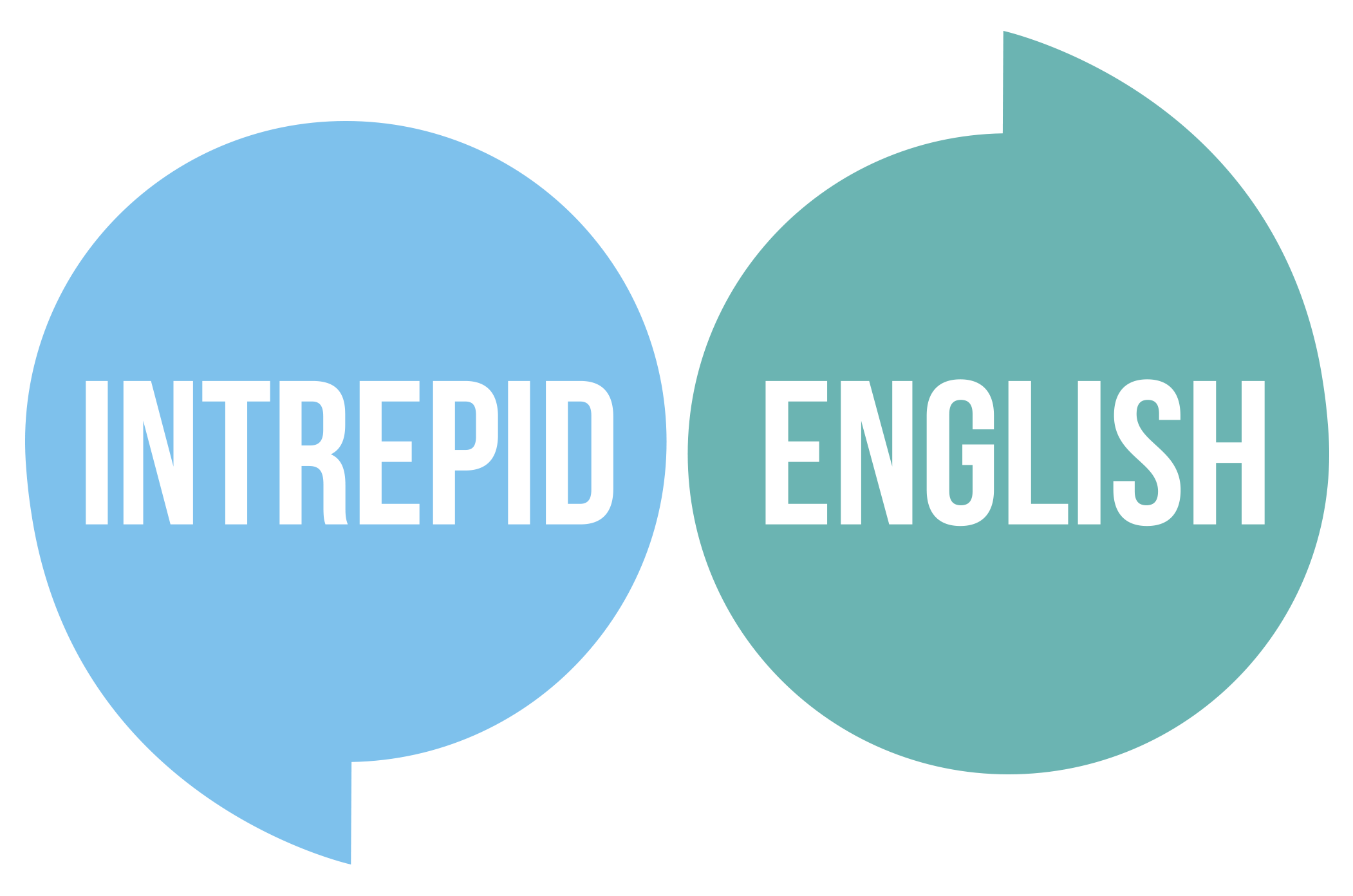



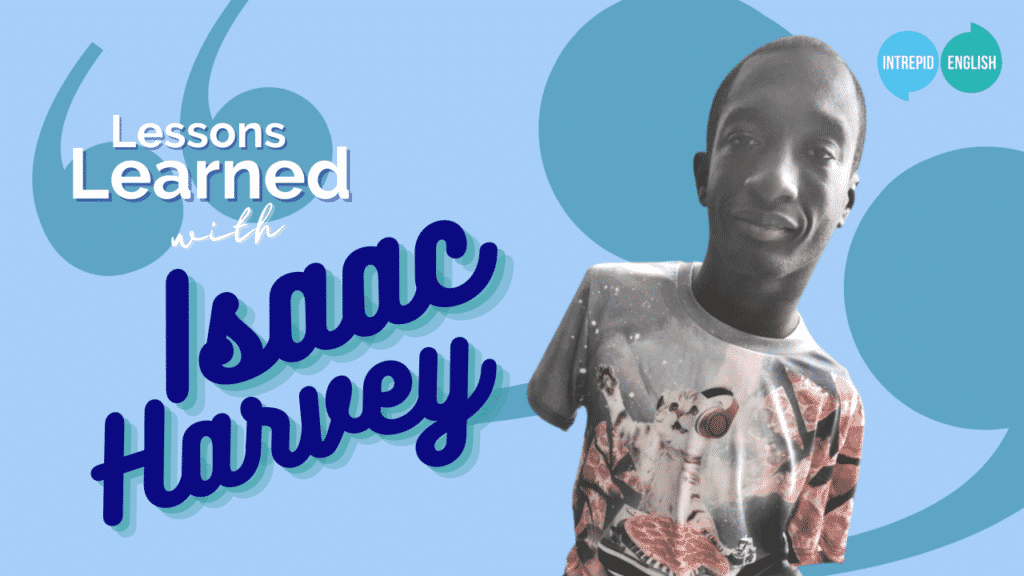
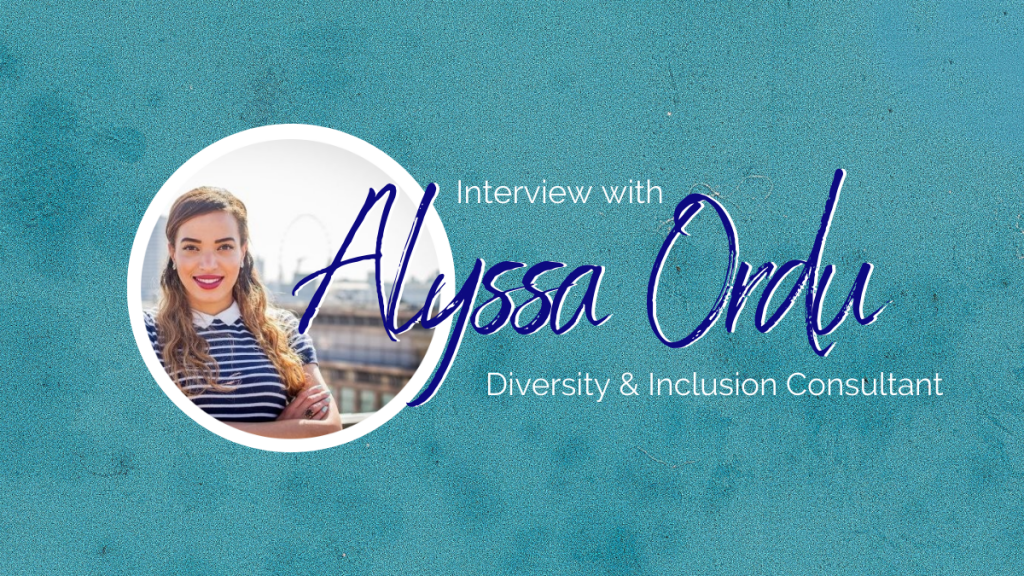
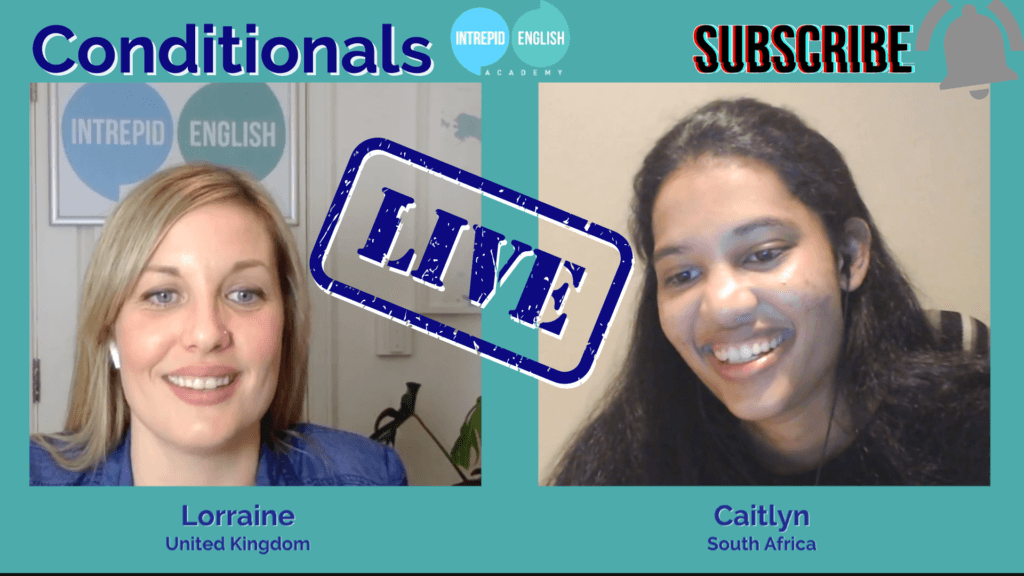
Responses